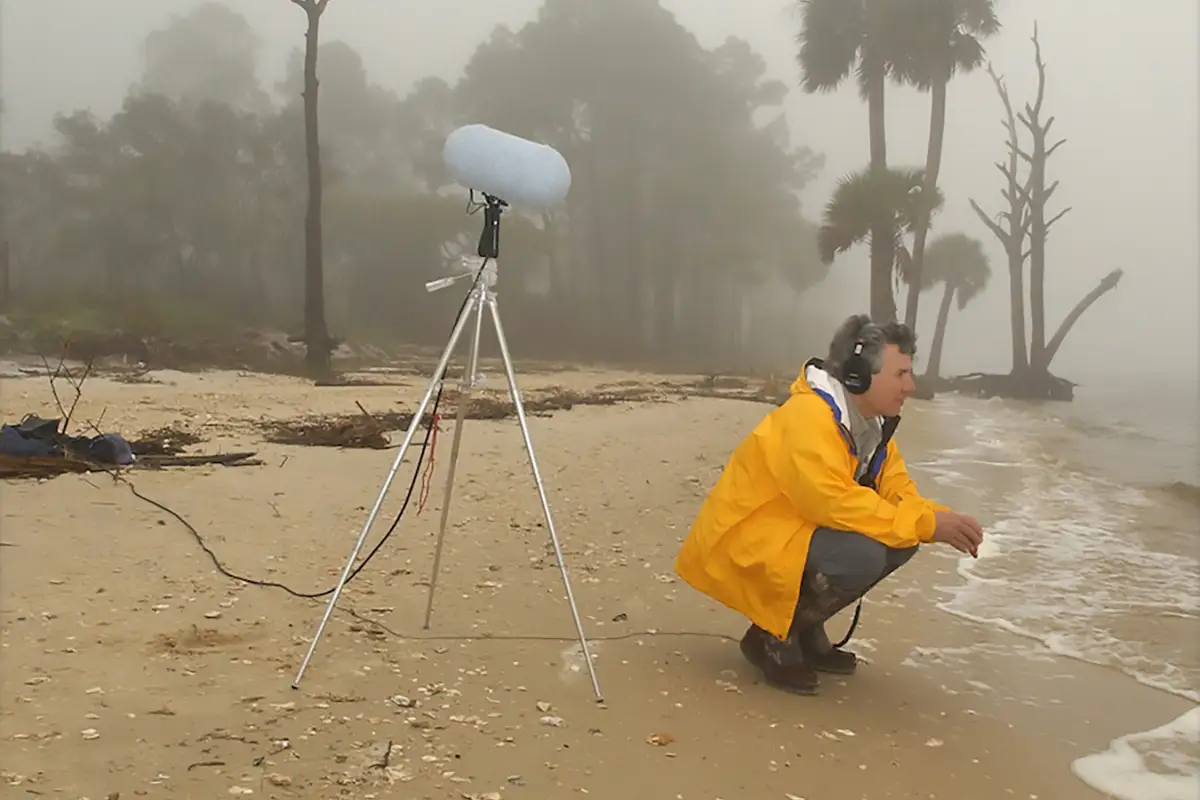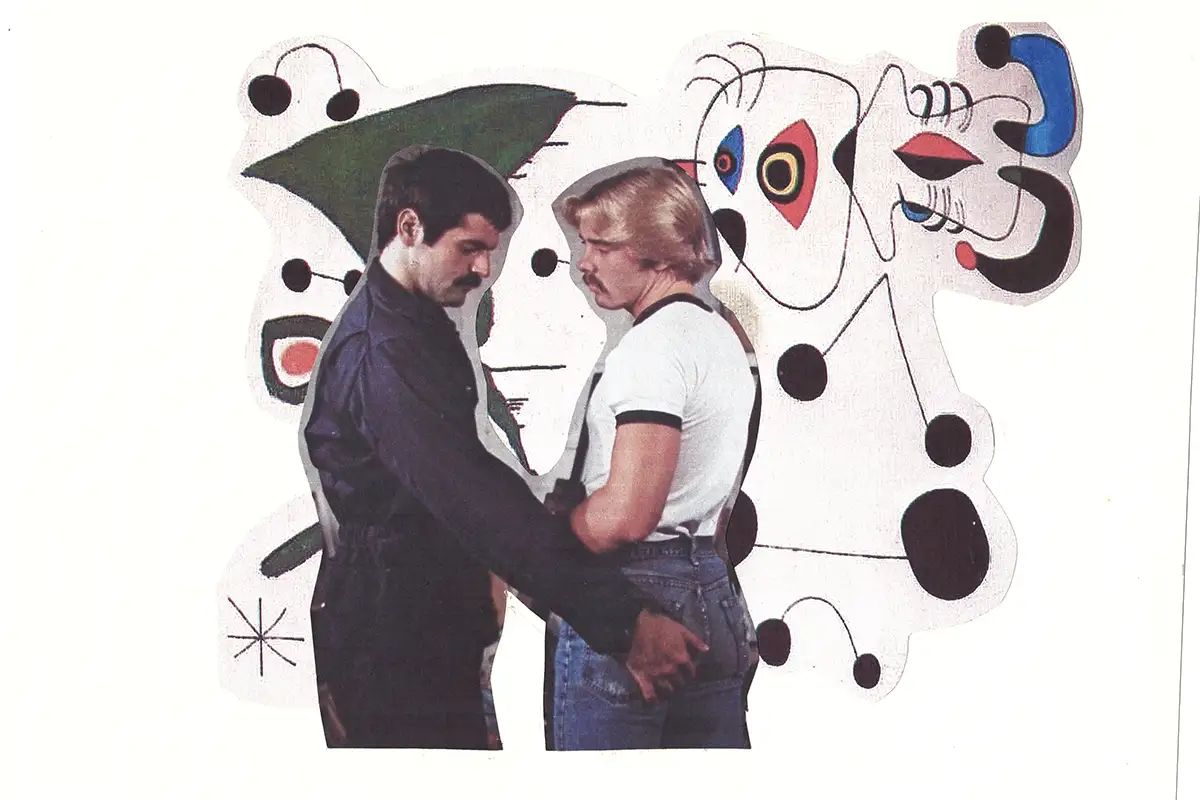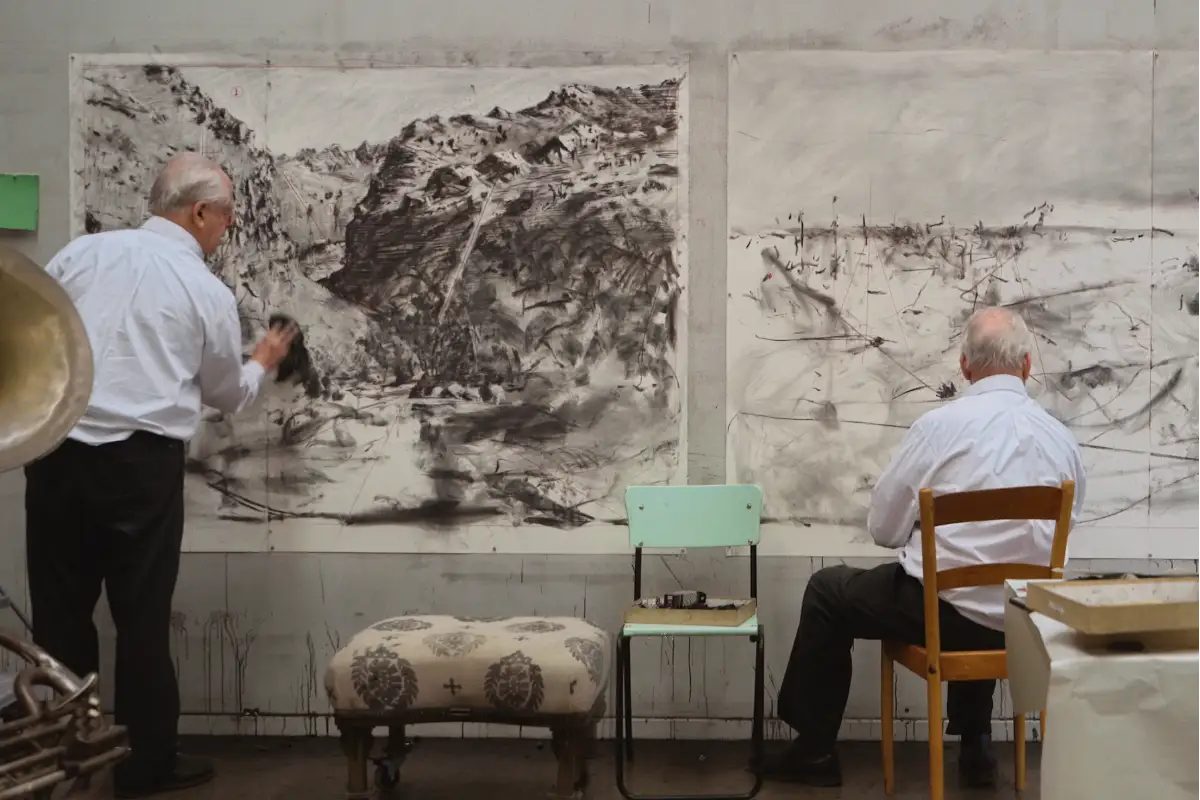From working with Ana Sting – the mind behind the visuals for Silk City’s New Love, featuring Ellie Goulding – to rediscovering her Cameroonian heritage: a conversation with Bikôkô
Bikôkô Aura Aura
Neï Lydia – also known as Bikôkô – the nineteen-year-old songstress from Barcelona, released her debut EP, Aura Aura, in January. With hypnotic harmonies and elements of jazz, techno and West African percussion incorporated throughout, Bikôkô guides the listener through a day in her life.
«Morning, afternoon and nighttime; to represent how my feelings would sound. Before starting to write any song I asked myself, ‘What time of the day would this be?’ or, ‘If this is the evening, then maybe I should do it slower’».
Bikôkô: a sentimental bond to music
Bikôkô has felt a connection to music since she was a young girl, playing at home with her father, also a musician, from whom she takes her moniker. This sentimental bond has followed into her career now. «I don’t share my music with anyone before it’s done except my dad», she says.
«If I’m struggling with a track he’ll listen to it and give me feedback and the song changes direction, or he gives me ideas that I’m able to build up from. Not only am I learning from my mistakes, but he told me about the struggles he’s encountered on his journey, so I’ve learned from his mistakes too». Being raised in an artistic household, it was a natural progression for her to become a musician, telling her own story through sound and sharing that part of her with the world.
A clear influence on Bikôkô’s music is her Cameroonian heritage – ‘aura aura’ is a call to attention, used throughout Africa to signify the beginning of a tale – African percussion rhythms flow throughout the EP, circling her melodies. It has been a challenge though, she says, to incorporate these roots into her sound whilst honoring tradition. «I’ve only been to Cameroon a few times, music there takes a completely different dimension. I’m trying to learn about African and West African music so that I can integrate it into my music».
Lampoon introduces Bikôkô
Growing up in Barcelona, Bikôkô was one of a few Black kids at her school; her curly hair and brown skin made her stand out amongst other students, and teachers struggled to pronounce her full name. As an adolescent, she felt forced to neglect her African heritage, in an attempt to fit in. Bikôkô looks back at that choice with frustration, but she says that it has led to her reconnection with Cameroon and her ancestry there.
«I’ve been rediscovering African music» she says. «Oumou Sangare, I love her first album. I’ve been listening to Fela Kuti more, too. I used to when I was younger, so I’ve been getting back into it». Musical influences Bikôkô mentions include R&B artists Erykah Badu, D’Angelo and Ray Charles, elements of whose sound she weaves into her own.
As for contemporary musical influences, since relocating to South London, she has been exploring the vibrant music scene there. «I’ve been listening to quite a few London-based artists, lately, like Celeste and Cleo Sol».
Listening, absorbing and collecting
She is «obsessed» with Alfamist, a London-based piano player and producer. «I love all his music: his instrumentals and the collaborations he’s done with other artists. Working with him would be a blessing». In her journey of discovery, Bikôkô has listened, absorbed and collected, feeding what she finds into her sound and lyrics.
«When I struggle with writing lyrics, reading books really helps. I’ll see a quote and that I like and I have to steal it, or take something from it», she laughs. A multifaceted artist, Bikôkô writes and produces her music alone, she plays djembe, piano and guitar, but is modest about her talents. «I don’t play any other instruments, but anything can be an instrument. Like a lamp» she muses, gently tapping the light to her side. «Or get a bowl of water and just swish it around. I don’t play instruments, I play stuff. I find inspiration from mundane places».

Different methods for writing a song
When making Aura Aura, Bikôkô employed a different method for writing each song. For example, Feel Like, a smooth, soulful track, full of airy vocals, punctuated by rhythmic djembe. «I came up with the melody line, and from there the lyrics. Once I had that down I put in the drums, which gave it a fresh energy, which fits how I feel in the afternoon», she explains.
Bikôkô’s gentle harmonies feature throughout Aura Aura, such as on tracks Get Up and Night. «I knew I wanted them to be focused on my vocals, so I lay out the melody and harmonies first. Then I wrote lyrics, and added the piano and instrumentation to get the vibe right».
Through her thoughtful methodology, Bikôkô has created an evocative sonic reflection of her day. Feel Like was the first song Bikôkô wrote for the EP. In the music video, directed by Ana Sting – the mind behind the visuals for Silk City’s New Love, featuring Ellie Goulding – she wanted to represent the encounters of the afternoon.
Exploring the different dimensions – Bikôkô’s rituals
Bikôkô escapes from the screen of a retro computer, through portals in her home and proceeds to explore the different dimensions in which she finds herself. She chose Sting for the project as she knew that the director would be able to reflect the track as she had imagined. Since starting out in her teenage bedroom, Bikôkô has remained an independent artist, finding that it ensures her sound is an authentic representation of herself, untouched by outside influence.
Recently, the support of Barcelona-based artist collective, Cutemobb, has enabled her to take her music to the next level. «The idea of Aura Aura came to me in September 2019 but I had no idea how I was going to release it», she says. «I wasn’t even thinking about that». It was Leïti Sène, the founder of Cutemobb who gave Bikôkô the support to make Aura Aura a reality.
Mixing African rhythms with electronic music
Bikôkô was living in New York. She had just turned eighteen and realized a longtime dream of moving to the city that never sleeps. Feeling lost in her new home, she began to search for a new purpose. Aura Aura was that purpose, an introduction to the world. It is an open welcome to the tale of this young woman, a window into who she is, where she is from and the facets that make up her person.
The circular drumming rhythms from Africa, the R&B, neo-soul sound inspired by Celeste and Erykah Badu, and the electronic undercurrent that she formed in her room. «The EP was shaping into itself around last summer and Leïti called me and asked me to be a part of Cutemobb». Though Bikôkô had her reservations at first, unsure if her musical style would fit with the group, once she and her friend Abdel – producer MALEK! – met the team, she was sold.
«It gave me the opportunity to work with a management team to release my EP». As well as the help with releasing Aura Aura, the collective has provided an extensive network for Bikôkô to utilize in Barcelona, and in London, where she is now based. In Bikôkô’s latest visuals, a medley performance of Aura Aura, the viewer is taken through the phases of a day which inspire the tracks on the EP. Over just a few minutes we are welcomed into the intimacy of the day to day. In soft morning light, bright midday sun, and deep blue twilight, Bikôkô sings, plays piano and dances; each movement in sync with the sound and feeling she evokes. Both her tone and performance are distinctive. Her quiet, soulful harmonies are hypnotic, drawing you into her voice just as her fluid movements captivate the eye.
Releasing a debut EP
The most rewarding part of making Aura Aura so far has been getting the final mixes back from her production team. «After mastering it sounds like a real song», she says. «After working on the tracks individually for months, I was frustrated and tired of listening to them. I remember sending in my mixes – two days later I got them back and listened through, and I couldn’t help it, I started crying». Bikôkô was overwhelmed with pride and relief at completing the project.
«I couldn’t believe I actually finished it. I’m used to working independently, and it’s easy not to finish work, because nobody is expecting anything, having people working with me pushed me to finish it», she says. «Once I heard the final product, I thought, ‘even if no one else likes it, I don’t care. I made this and I love it».
The release of her debut EP has put a spotlight on Bikôkô, and though she is confined due to a national lockdown, there is hope for live performances of Aura Aura later on this year. Her visual accompaniments to the record give a glimpse to what may be expected: a soulful, intimate performance which reflects her unique genre. In exploring her Cameroonian background, delving into African music, exploring percussive rhythms and incorporating that into her distinctive sound, Bikôkô has opened the door to let in the world. Aura Aura is her call to the world, inviting us to listen, to hear the tale of this young woman and journey with her from dawn to dusk.
Bikôkô
Bikôkô is a nineteen-year-old singer-songwriter from Barcelona. Now based in London, her music branches across R&B and neo soul, incorporating djembe African drumming, jazz and techno.



















